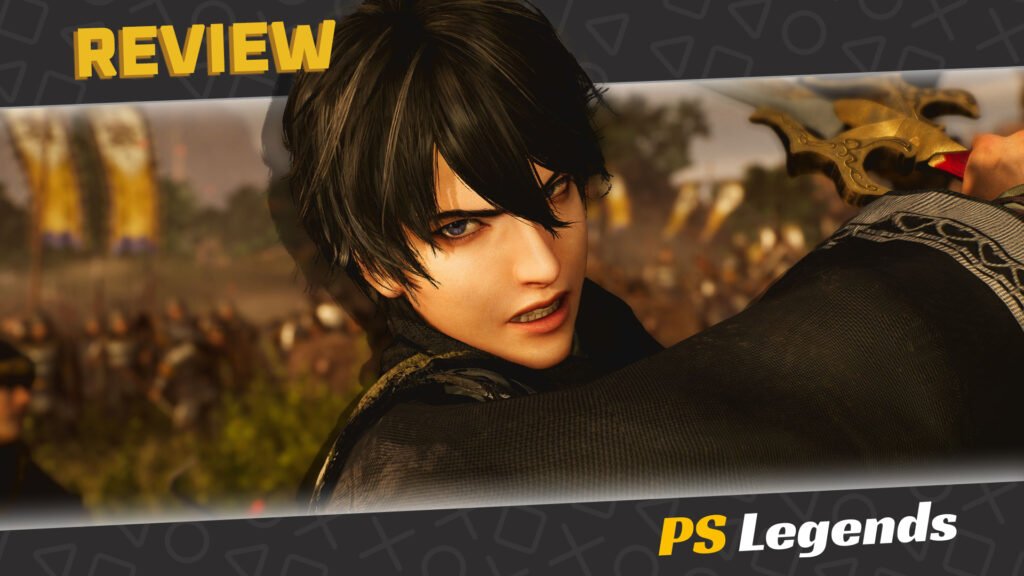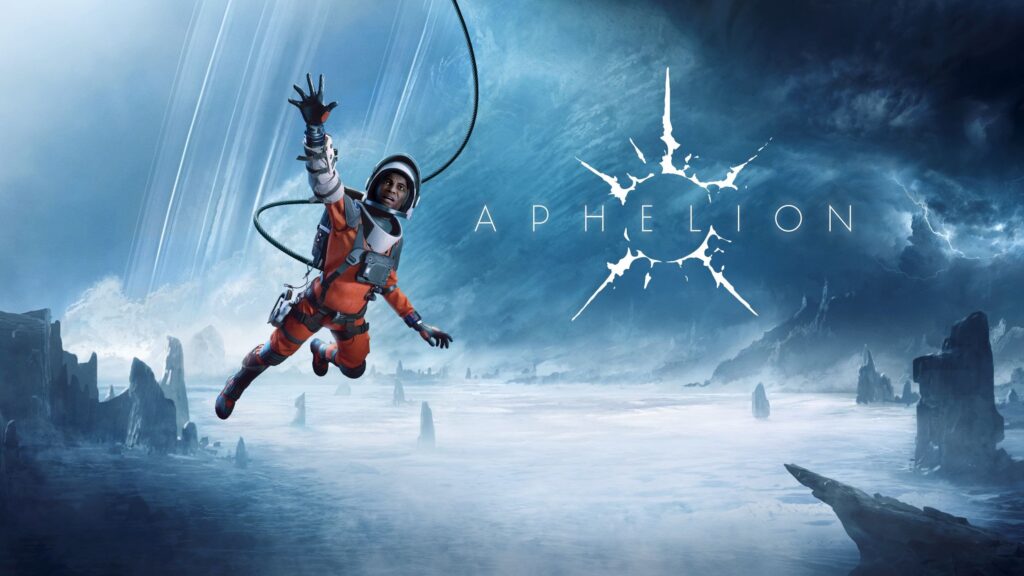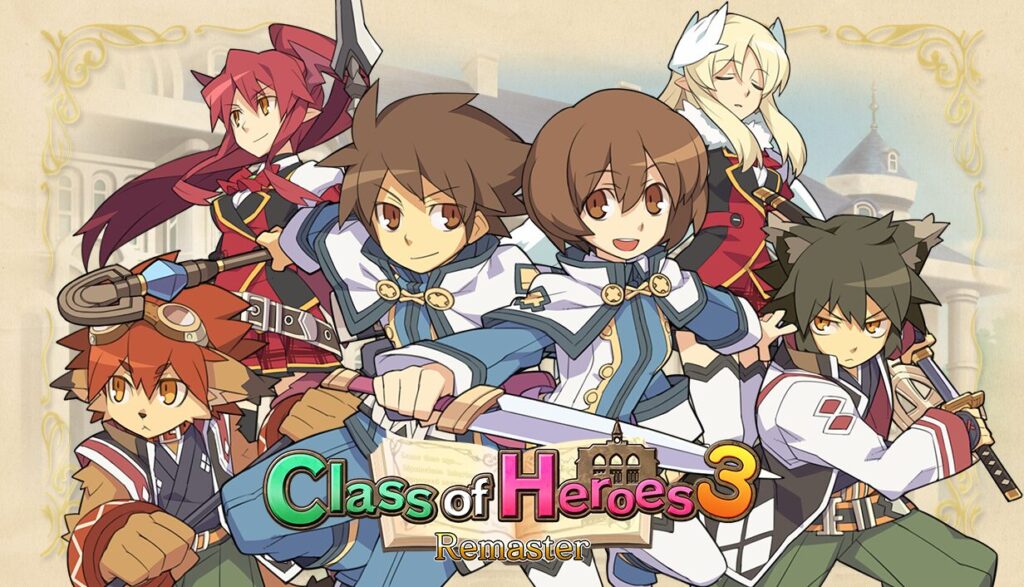Wars have been fought over religion and divine providence. One of the most written about periods happens to be the Chinese Warring Dynasties period. However, most would now know it as the Romance of the Three Kingdoms and a spin off of the game adaptation Dynasty Warriors.
A Mandate from the Heavens
The year is 184 CE and the Yellow Turban Rebellion has rocked the Han dynasty. The leader, Zhang Jiao, has been gaining power while his army loots and pillages the land. Warriors have been gathering to quell the rebellion.
Among the most prominent is, Liu Bei the leader of a Mercenary army. While these leaders gather a lone Wanderer travels the land searching for a cause and himself. Now he will help shape the future of China.
Dynasty Warriors’s History Accuracy
Perhaps one of the most interesting aspects about Dynasty Warriors is that the history is based on real stories in Chinese history. Outside of the Wanderer, every character is a historical figure. Even the most fantastical parts of the story are deeply rooted in the Chinese mythos.
For example, Zhang Jiao is able to quite literally, lift rocks off the ground and also conjure lightning. If you look up the historical records for Zhang Jiao, you’ll find that he’s also referred to as Zhang Jue, and he performed many acts of “magic” to inspire his followers. He was later found to be a con man and would eventually die of an illness six months after the start of the rebellion due to illness.
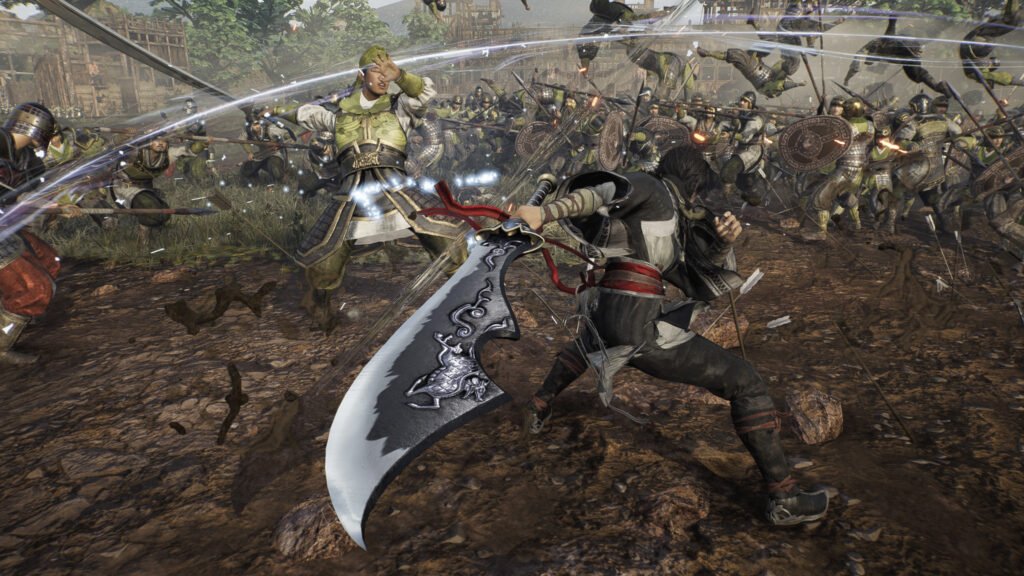
It’s interesting how well these aspects fit into this over the top narrative so well. This aspect makes Dynasty Warriors Origins a perfect entrance into media surrounding this time period. While this period is considered fact many aspects are wrapped in mythological deeds that has either been exaggerated or fabricated in its entirety.
So What About the Character?
The real draw for me is the depiction of the characters. For example, Zhang Jiao is shown as a leader searching for peace who slowly compromises on his ideals. He doesn’t have the strength to force the heavens to bow to him. This interpretation paints him not as a villain but a flawed man.
While some allies like Dong Zhou don’t come off as heroes at all. For instance, there’s a specific battle where he quite literally uses his assistant as bait, without even telling the poor man.
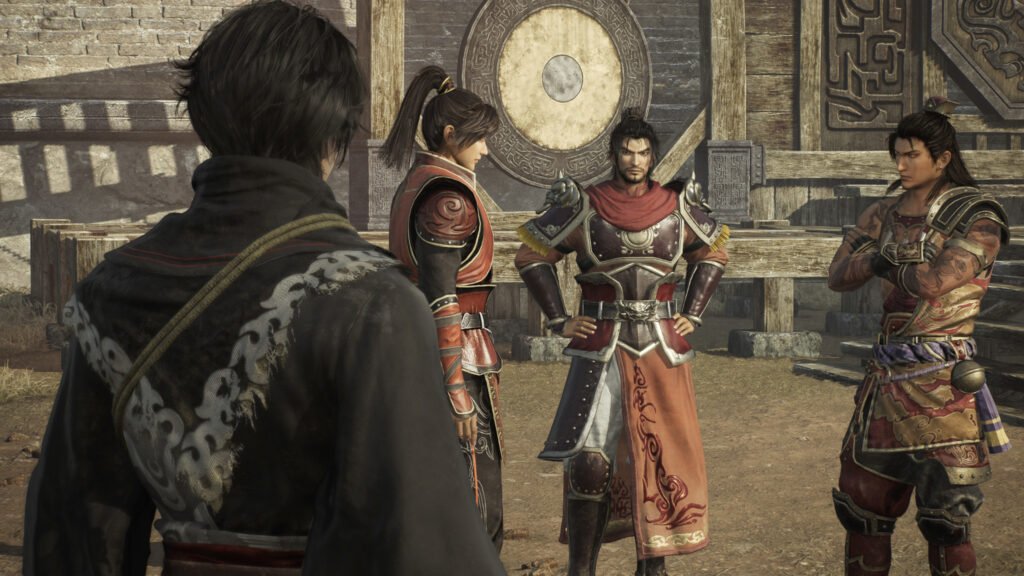
This simple action paints the battles not entirely on right and wrong but instead focuses on ideals. What is most important to you as the player. Which can help shape the way players will view each battle.
Whether ist’s strength and power, like Dong Zhou, loyalty and Brotherhood like Liu Bei, or Wisdom and knowledge like Cao Cao. It’s up to the player to decide who and ‘what they fight for. It’s a fun idea and a quick thing is that most of this is only from the First chapter of the game. There is so much happening that each chapter is interesting and reveals quite possibly the weakest aspect of Dynasty Warriors Origins, The Wanderer.
So Who Am I?
In this landscape of legendary figures who exactly is the Wanderer? The simple answer to that is that he is the player sent to watch and shape the unfolding events. He is less of a character and more a vehicle for the player to embody.
He can use any weapon and stays mostly silent. While there is a story surrounding him and a mysterious order. He takes a back seat to these legendary figures who are much more interesting than the Wanderer.
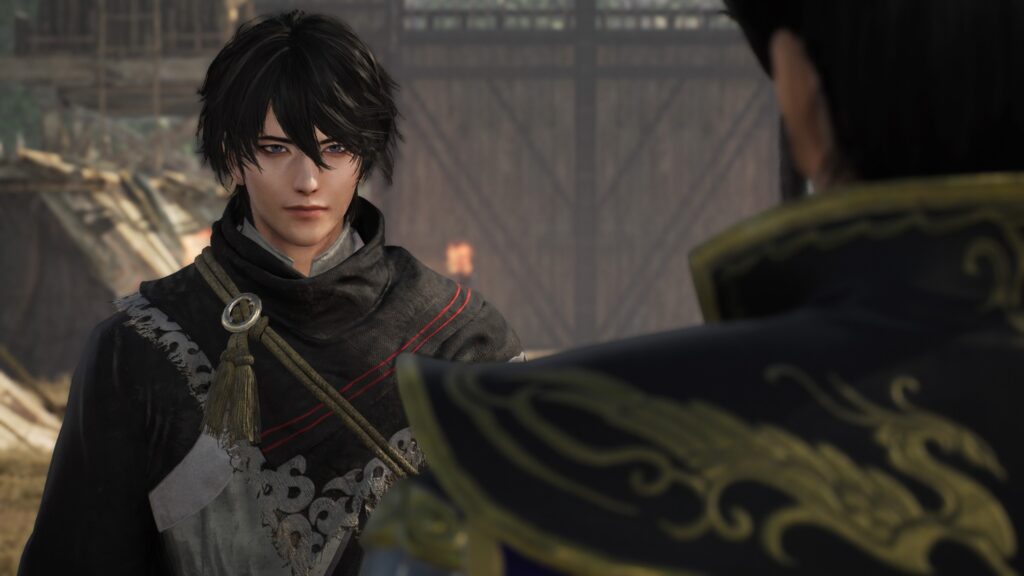
There would be times that I was wondering why I couldn’t play as Liu Bei or Cao Cao. It almost felt like I was hoisted into a character designed to be forgotten with no personality. This is definitely something that will hold back the game for a lot of people.
While players will be able to take control of other warriors for brief instances later in the game. The wanderer is the character that players will embody and he honestly lacks a little bit-of something. Much like some of the voice acting.
Something Sounds Off
Dynasty Warriors: Origins offers the ability for both English and Japanese voiceovers. For the purposes of this review, I went with the English voices, and I couldn’t help but notice that some of the voiceovers were…somewhat lacking. This wasn’t every character as Liu Bei and Cao Cao would sound fine or good. However, I started to notice a clear lack of emotion or nuance in the delivery of some lines.
I would constantly notice this in the delivery and ask myself if this was the best take? The Japanese voice over is better but I still noticed some of that emotionless cadence in the delivery. As if the actor was told to just read the script. Which makes some scenes jarring or boring to sit through.
How Do I Play Though?
So, after all of that how does Dynasty Warriors Origins actually play? In a very short summary, the gameplay is fun and varied even if the Wanderer himself is a little boring. Visually, Koei Tecmo know how to make every aspect entertaining to watch. Mowing through hundreds of enemies feels and looks amazing.
Players will mix their time between the overworld and missions. In the overworld, the Wanderer will run around on a map where he can collect resources or get closer with various generals.
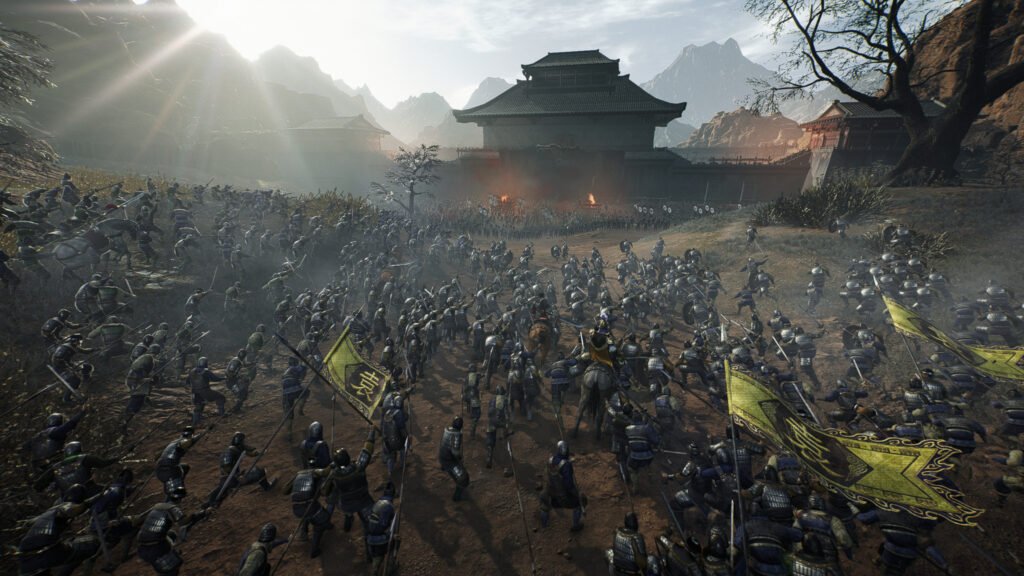
These Bonding events are important, as they give more cutscenes focusing on the relationship between the Wanderer and the warlords and their retainers. They are also capable of giving missions that will reward players with more skill points.
Skills are a very important aspect of growing stronger as these range from adding a point to strength to obtaining new abilities for the player. These missions range from defeating a certain amount of enemies with a given weapon, to taking a certain amount of bases.
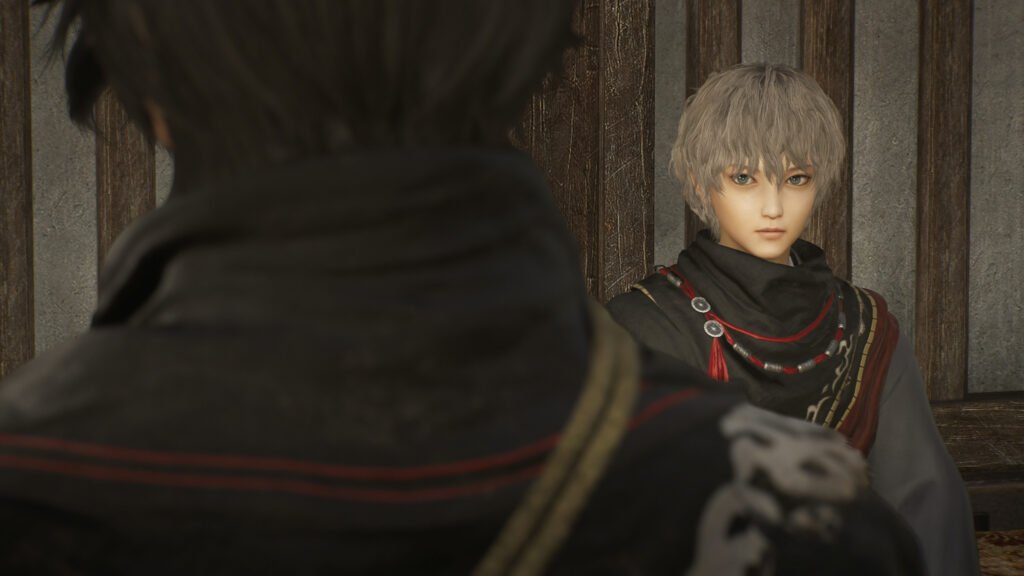
These skills insure that players can have core abilities that will bounce between weapons giving the idea of having specific builds for situations. While keeping weapons as a major component for the entire game. I’ll be back with weapon
I’ll Be Back… With Weapons!!
So, the most important aspect of any musou game are the weapons. And Dynasty Warriors Origins is no exception. The leveling system is based on the proficiency the Wanderer has with each weapon type. So, for example, if I had four proficiency in swords and four proficiency in lances my level would be eight.
This system incentives players on switching weapons as the first four levels of proficiency is quick to earn. This also helps cement the Wanderer as this jack of all trades. I did find that eventually I would settle on a single weapon type as generally combat between each weapon is the same.
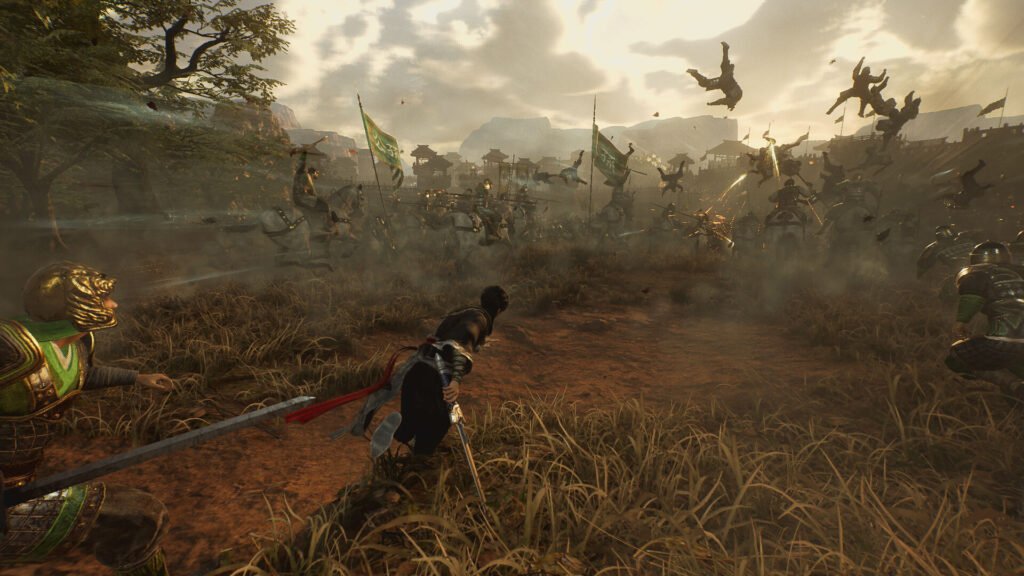
Generally, combat boils down to light and heavy attacks. Each weapons only difference is the range, speed, and visual effects of the weapon. Even this helps players switch weapons frequently allowing smooth transitions between each weapon.
Even damage is relegated to tiers rather than based on the individual weapon. So, as long as the weapons are the same rank they will do the same damage. That way there is never a reason outside of preference to change a weapon.
Bring Honor to Us
Dynasty Warriors: Origins is a fantastic game. It provides a nice jump in point for newcomers, and not only does it sets up the start of this time period, but it highlights key characters without judging them.
While it may have some flaws, such as the lackluster voice acting and how the game strictly places the Wanderer in the narrative, if you were thinking of getting into the Dynasty Warriors series, then look no further than Dynasty: Warriors Origins.
Joys
- Combat is fluid and easy to master
- Characters are not good or evil but instead have opposing ideals
- The mythical aspects are strengthened to give a romanticized version of this period
Cons
- Voice Acting feels stiff and emotionless at times
- The Wanderer is a player vehicle and not a character
